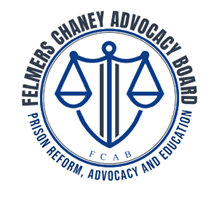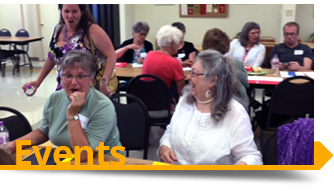Juvenile Justice
Juvenile Justice
See the entire policy report here: LOPPW Youth Justice Report
See the one-pager here: YJ in WI One-Pager
From the Raise the Age Coalition Website, which was originated by LOPPW in 2021 and maintained until December 31, 2024:
It’s Time to Raise the Age Wisconsin
Raise the Age – Wisconsin is a broad coalition dedicated to bringing 17-year-old youth back to their rightful place in the juvenile court system and eliminating, as opposed to exacerbating, any disparities across Wisconsin’s juvenile justice system. Our coalition members’ urgent push for this bipartisan legislation is part of our shared call for a more equitable, benevolent, and just Wisconsin.
Please take time with our Raise the Age Informational Webinar, which includes personal stories, and please feel free to share: Video
Resolution from the Greater Milwaukee Synod Assembly in June 2023: Resolution-2-Final-Resolution-in-Support-of-the-Raise-the-Age-Wisconsin-Campaign
Raise the Age Webinar April 2022! Please take time with our Raise the Age Informational Webinar, which includes personal stories, and please feel free to share.
In the fall of 2020, the LOPPW Advisory Council voted unanimously to add criminal justice reform as an LOPPW priority. At the same time, the LOPPW Director and Advisory Council decided to focus advocacy efforts on juvenile justice reform here in Wisconsin.
A Proven Track Record
Forty-six states across the country process 17-year-olds in the juvenile justice system. States who Raised the Age have seen crime rates plummet and improved outcomes for youth in the system. These outcomes include a growth in high school graduation rates, lower racial disparities, and improved mental health care. States are also seeing these improved outcomes translate to fiscal savings. All told, raising the age has been proven to keep communities safer, decrease government spending, lower racial disparities, and, most importantly, improve the lives of youth caught in the criminal justice system.
Has Bipartisan Support
Democrats and Republicans alike believe that raising the age is the right thing to do. Raise the Age appeals to traditionally conservative values such as fiscal responsibility and public safety, while also lowering incarceration rates and providing rehabilitation for those in the justice system, policies favored by Democrats. Finally, raising the age gets to the heart of what we all believe in; that Wisconsin should properly care for our state’s young people and equip them for a healthy, successful life. In this partisan political environment, Raise the Age is one of the few policies almost everyone can agree on.
Improves Outcomes for Wisconsin’s Young People
There are mountains of evidence that “justice-involved youth are more likely to move beyond delinquency and successfully transition into adulthood if they are served by an effective youth justice system.” Young people in the juvenile justice system are exponentially more likely to graduate high school and obtain steady employment. The juvenile justice system also better addresses mental health or substance abuse challenges which may break a cycle of incarceration or trauma among young people caught in the justice system.
Properly Addresses Mental Health Challenges & Past Trauma
“As of January 2020, 100% of females and 72% of males in Wisconsin youth corrections facilities had a mental health issue, including those who were convicted in adult court.” Bringing our state’s young people back into the juvenile justice system opens an array of mental health programming, trauma counseling, substance abuse recovery, and other community-based programming. This expanded arsenal of rehabilitative and recovery programs will address mental health challenges and trauma in ways the adult system simply cannot.
Fiscally Responsible Policy
A prominent argument against Raise the Age is its supposed added costs, but these arguments are misguided. In the short term, the juvenile system leads to more young people served in community-based programs instead of expensive, confinement settings. As a result, a large number of states have seen initial concerns about escalating costs never materialize. Additionally, the placement of young people in the juvenile system looks even better to long-term state budgets. Because 17-year-olds in the juvenile system are more likely to avoid reincarceration and receive a high school diploma, they are more likely to have steady, higher-paying jobs that add to a state’s tax base. Economists from Missouri State University predict that for every 100 17-year-olds moved back to the juvenile system, Missouri will add almost $17,000,000 to their tax base over those people’s lifetimes.
“Staying in the Juvenile system would have given me a much greater chance of being rehabilitated; I would have been treated like the kid I was. I could have been treated by social workers and psychologists. I could have been placed in programs to help kids like myself, which adult prisons do not provide. I would not be so traumatized & subjected to the abuse that I experienced being placed in the adult prison.”
— Rex
Addresses Racial Disparities
Wisconsin has the second highest black-white incarceration disparity in the country. While this disparity needs to be addressed at all levels of the system, reforming how we treat the youngest people in our criminal justice system can have compounding effects in reducing racial disparities across the board. Kids Forward has found that the automatic transfer of young people into the adult system disproportionately affect youth of color. And once they are in the adult system, black and Native American youth “are more likely to face conviction in adult court, especially for drug-related crimes.” Bringing youth back into the juvenile system and funding effective rehabilitation and diversion programs reduces racial disparities within the criminal justice system and ensures that the lives of our youth aren’t destroyed by a mistake made in their adolescence.
Protects Young People
The adult prison system is no place for our state’s youth, and Raise the Age would help reduce the trauma and abuse sustained by young people in the Wisconsin corrections system. The conservative MacIver Institute reports that, despite comprising less than 1% of the adult prison population, juveniles represent over 20% of its sexual abuse victims. This may help explain why juveniles in the adult system are 36 times more likely to commit suicide compared to their adult counterparts. Confining young people alongside adults only leads to further abuse and trauma, and our state should do everything it can to reduce the juvenile population in the adult system and protect the young people in their care.
Responds to Brain Science
Research in adolescent brain science, developmental psychology, and sociology demonstrates that adolescents are not mini-adults; research shows that adolescents are highly influenced by peers, impulsive, and fail to consider future consequences, To some degree, risky and even illegal conduct is normative for adolescents. But research also indicates that this is a period of great malleability and nearly all youth will mature and age out of crime if given the opportunity to do so. Ensuring that adolescents are treated in the more developmentally appropriate and rehabilitative juvenile justice system, rather than the adult legal system, leads to better youth outcomes and increased public safety.
Makes Our Communities Safer
Policy experts have concluded that the juvenile system is more effective than the adult system in promoting longterm community safety. This is because the juvenile system’s rehabilitative programming leads to a 34% lower recidivism rate and stop a cycle of incarceration before it even begins. This means young people in the juvenile system are more likely to avoid future entanglement in the justice system. The CDC found that youth transferred to the adult system were 39% more likely to be re-arrested for a violent offense in the future than those who stayed in the juvenile system. Simply put, moving youth back to the juvenile system keeps Wisconsin communities safer.
Youth Justice in Wisconsin: A Clear Perspective
LOPPW’s new policy report, titled Youth Justice in Wisconsin: A Clear Perspective, provides a comprehensive overview of Wisconsin’s youth justice system, including where our system is falling short and how we can start to rethink our treatment of justice-involved youth. This report also states and explains LOPPW’s own priorities and policy positions regarding needed changes in how Wisconsin prevents, diverts, and treats youth who become justice-involved.
Revised+RTA+Talking+Points+pdf
In the News
Public Statements & Reports
ACLU of Wisconsin: Wisconsin Should Stop Persecuting 17-Year-Olds as Adults.
Raise the Age – Wisconsin: Advocates Launch “Raise the Age – Wisconsin” Coalition to Pass Bipartisan Juvenile Justice Reform.
ACLU of Wisconsin: Endorses Budget Proposal To Raise The Age For Adult Criminal Charges To 18
Office of Children’s Mental Health – Highlighting Disparities in Youth Justice
Wisconsin Legislative Council Report – Criminal Sentencing of Juvenile Offenders in Adult Court
In The News
Public News Service – Report Prompts New Calls for WI to ‘Raise the Age’ for Criminal Responsibility
Wisconsin Public Radio – Evers Makes Pitch For Juvenile Justice Reform As GOP Lawmakers Prepare To Review Budget
WSAW-TV 7 – Gov. Evers looks to return 17 year-olds to juvenile justice system. Currently, they’re charged as adults.
WIZM News Talk – Return 17-year-olds to juvenile court.
MacIver Institute – 17-Year-Olds in Adult Court: Is There a Better Alternative for Wisconsin’s Youth and Taxpayers?
R Street – As one state implements Raise the Age reforms, others should join in
FAQs
What does Raising the Age mean?
Raising the Age in Wisconsin will help ensure that youth will be treated as youth, not adults, by the legal system. Raise the Age Policy will raise the age of juvenile jurisdiction so that the juvenile court system will have original court jurisdiction over all 17-year-olds. When we Raise the Age, outcomes improve for our state’s young people as a vast majority of justice-involved 17-year-olds will be tried and rehabilitated in the juvenile system instead of the adult system.
Do other states deal with 17 year-olds this way?
No. Most other states treat 17 year-olds as the adolescents they are. In fact, Wisconsin is only one of 4 states that still automatically tries 17-year-olds as adults. Across the country, states are recognizing the importance of raising the age.South Carolina, New York, Michigan, and North Carolina have all passed raise the age legislation in the past 10 years.
Who will be affected by Raising the Age?
Raise the Age of juvenile court jurisdiction to include 17 year olds will affect thousands of young people each year. 17-year-olds who become justice-involved will be affected by this policy because all of them will start in the juvenile justice system. Wisconsin DOC 2019 data indicates that almost 9,000 17-year-olds will be affected each year, but this number is falling as crime rates among youth continue to drop.
What kind of crimes are these youth committing?
The largest cohorts of youth arrests are for disorderly conduct, underaged drinking, possessing small amounts of marijuana, petty theft, or other minor infractions. Less than 3% of all juvenile arrests are for the FBI terms “violent crime”.
Will those charged for the most heinous crimes still be tried in the juvenile system?
Raising the Age would ensure that every young person’s case would start in the juvenile system, and that only the most serious cases would be able to be moved to the adult court. For the most serious offenses, juvenile court judges, after reviewing the case, could decide that a youth would be better served in the adult court system and waive them to the adult system. However, raising the age sets the “default” for youth in the juvenile system, not the adult system.
How many young people will be affected by Raising the Age?
In 2019, Wisconsin law enforcement made about 35,000 arrests of those under aged 18, spanning 70 of Wisconsin’s 72 counties. Almost 9,000 of these arrests were of youth aged 17. Raise the Age legislation would provide original adult court jurisdiction for every single one of these arrests across the state. However, raise the age policies have been proven to speed the decline in juvenile arrests, and the juvenile court’s emphasis on community-based rehabilitation is generally much less expensive than adult court confinement models.
Does this issue have bipartisan support?
Yes. Raise the Age legislation has bipartisan support in the Wisconsin State Legislature and around the country. Wisconsin State Representatives from across the political spectrum have previously voiced their support for raising the age, and many have joined together to introduce previous Raise the Age legislation. The first attempt at passing this law was nearly 15 years ago!
Why does the issue have bipartisan support?
Raise the Age appeals to traditionally conservative values such as fiscal responsibility and public safety, while also lowering incarceration rates and providing proper rehabilitation for those in the justice system, policies favored by Democrats. Finally, raising the age gets to the heart of what we all believe in; that our government should properly care for our state’s young people and equip them for a healthy, successful life. In this partisan political environment, Raise the Age is one of the few policies almost everyone can agree on.
If the issue has bipartisan support, then why hasn’t the law passed?
There are a number of reasons why Raise the Age legislation has yet to pass over the finish line. First, raising the age involves transferring funds from the state budget to county budgets. This is because juvenile courts are run by counties, while the adult system is run by the state’s corrections department. However, Governor Evers’ budget includes sum-sufficient funding of raising the age, which addresses this problem. Finally, while this policy is popular across party lines, a small minority of people are still opposed to smart-on-crime policy, and have historically opposed this legislation. These two roadblocks have stopped raise the age legislation in the past.
Does Raise the Age help public safety?
Raising the Age is a smart on crime policy that leads to safer communities and better outcomes for justice-involved youth. One of the most striking community benefits is the impressive reduction in future criminality among youth who are moved to the juvenile justice system. The Center for Disease control found that youth in the juvenile system have a 34% recidivism rate compared to their counterparts in the adult system, even when adjusted for other factors. This translates to thousands of youth who will leave the juvenile system and never return to the justice system in the future. Contrary to common belief, youth who make mistakes and get arrested are generally not individuals that have started down the path to an adult life of crime, and most will commit fewer crimes (or make smarter decisions) as they mature and become less impulsive. This may help explain why Raise the Age legislation is supported by both conservative and progressive advocacy organizations.
Does the Raise the Age Coalition support other juvenile justice reform efforts?
The Raise the Age Coalition is a group of organizations partnered to pass Raise the Age legislation in the state of Wisconsin. Most members of the Raise the Age Coalition support additional juvenile justice reform efforts and broader criminal justice reform. However, our coalition has partnered together for one common goal: bringing 17 year olds back to the juvenile justice system.
How is this “fiscally responsible” if the Governor had to allocate funding to raise the age efforts?
As previously mentioned, moving young people from the adult system to the juvenile system means transferring them from the state corrections system to county supervision. This transfer from state care to the counties mean that funding must follow. The transfer of funds from the state to counties does not detract from the long-term fiscal savings or indicate that raise the age policy is significantly more expensive. Studies from the University of Wisconsin, the Justice Policy Institute, Missouri State University, UCLA, and other organizations have demonstrated the long-term savings, expanded tax base, and strengthened workforce that results from bringing youth to the juvenile system. For example, a study from Missouri State University found that every young person brought back to the juvenile system will pay almost $170,000 more in taxes over their lifetime.
Studies and research have also shown that the programming and approaches in the juvenile justice system are much more cost-effective that the expensive confinement model used in the adult system. The University of Wisconsin conducted a rigorous cost-benefit analysis of 571 criminal justice programs, and found that those most cost-beneficial in reducing future crime were targeted at juveniles. Of these, the five most cost-beneficial rehabilitation programs and the single most cost-beneficial prevention program were family-focused approaches. Children served by the adult system cannot receive family-focused interventions, while this approach is available in the juvenile system.
Would moving 17-year-olds to the juvenile system really improve their safety given that we already have federal Prison Rape Eliminate Act [PREA] policies to help stop sexual and physical abuse in Wisconsin’s jails and prisons?
While PREA’s Youthful Inmate Standard did set up precautions to help combat sexual abuse in prison, the implementation of these guidelines has not stopped sexual abuse against minors and, unfortunately, it has created some new problems. In a 2018 study on PREA’s effect on young people in adult prisons, the Campaign for Youth Justice concluded that “youth who remain in [adult] facilities are unfortunately still at risk” for sexual abuse.
Additionally, corollary trauma has been inflicted on young people in the adult system as a result of the same PREA guidelines meant to protect them against sexual abuse. For example, to prevent this type of abuse, juveniles must be separated by sight and sound from adult inmates. However, corrections facilities, even those that exceed PREA compliance standards, are generally not equipped to provide adequate environments for juveniles separate from adults, and investigators found that many facilities relied on the use of solitary confinement for juveniles to keep them separate from adult populations. Like being sexually abused, solitary confinement is destructive and traumatizing for developing minds, and leads to exploding rates of suicide and mental illness, including “anxiety, depression, anger, obsessive thoughts, and paranoia.” In addition to the use of solitary confinement, juveniles in adult facilities frequently receive inadequate opportunities for education and exercise or outdoor activities. By raising the age, we prevent 17 year olds from ending up in adult facilities in the first place.
In Print: RTA+FAQ
Raise the Age Advocacy Resources
We need your help to pass Raise the Age legislation and bring 17-year-olds back to their rightful place in the juvenile justice system. Advocates across the state are working together to pass this important justice reform, and the raise the age coalition has created numerous resources to make RTA advocacy accessible for everyone. Please use our resources below to advocate for Raise the Age!
Videos
-
Video from Raise the Age Informational Meeting
-
Raise the Age Coalition Member Ramiah Whiteside shares his lived experience in this Video. As a youth, Ramiah was waived into the adult court system before 17-year-old youth automatically were placed there. Since 1995, the adult justice system has been the automatic default for all youth 17 years of age. Our state has moved even further backward since Ramiah’s experience as a 17-year-old in the justice system.
RTA Issue Brief
Use our Raise the Age Issue Brief to learn more about the issue and to help inform your RTA advocacy work. This Issue Brief can also serve as a leave-behind item for legislative visits.
Writing to Your Representatives
Need a hand writing to your legislator? Use one of our letter templates to write to your elected officials about the importance to raising the age!
Our Advocacy Toolkit
The Advocacy Toolkit is our comprehensive guide to RTA advocacy. This toolkit includes guides on how to conduct advocacy visits and write letters to your legislators. It also contains talking points and additional information on raise the age policy, so you can confident and prepared in your advocacy efforts!
Our Guide to Advocacy
New to direct advocacy? See our Advocacy Guide for step-by-step instructions on meeting with your elected officials to talk RTA.
RTA Talking Points
Need some talking points for a legislative visit or a letter to your elected official? Our RTA Talking Points provides quick facts and figures about why RTA improves youth outcomes, addresses mental health concerns, improves community safety, and other important topics.
Raise the Age Partners & Supporters
 . .
. .  .
. 
 .
.  .
. 
 .
. 








- LOPPW’s Raise the Age Call to Action
- For information on why Wisconsin needs to raise the age find Raise the Age Wisconsin.
- To advocate on Raise the Age policy, see the Raise the Age Advocacy Toolkit, which was authored and organized by LOPPW staff.



